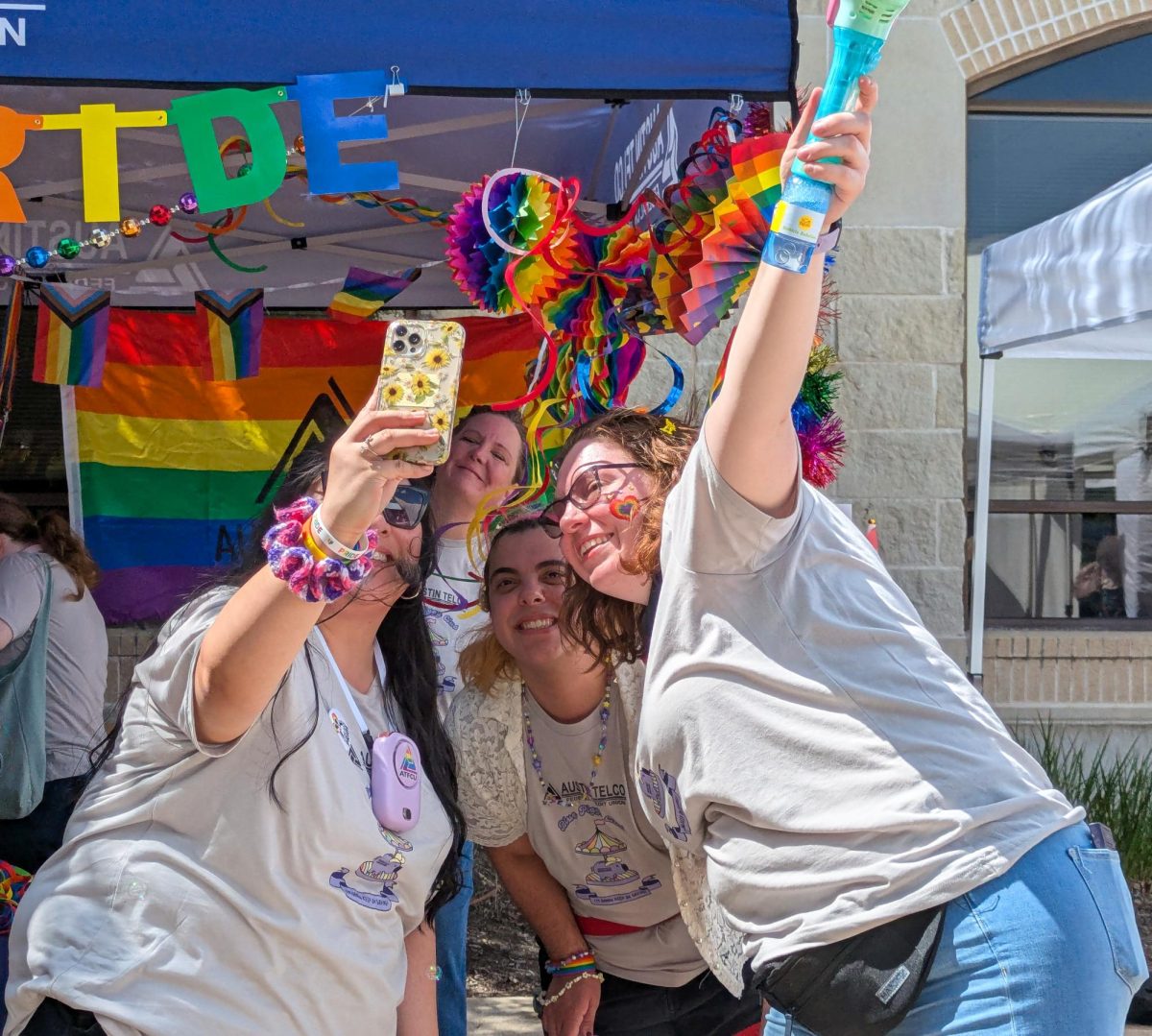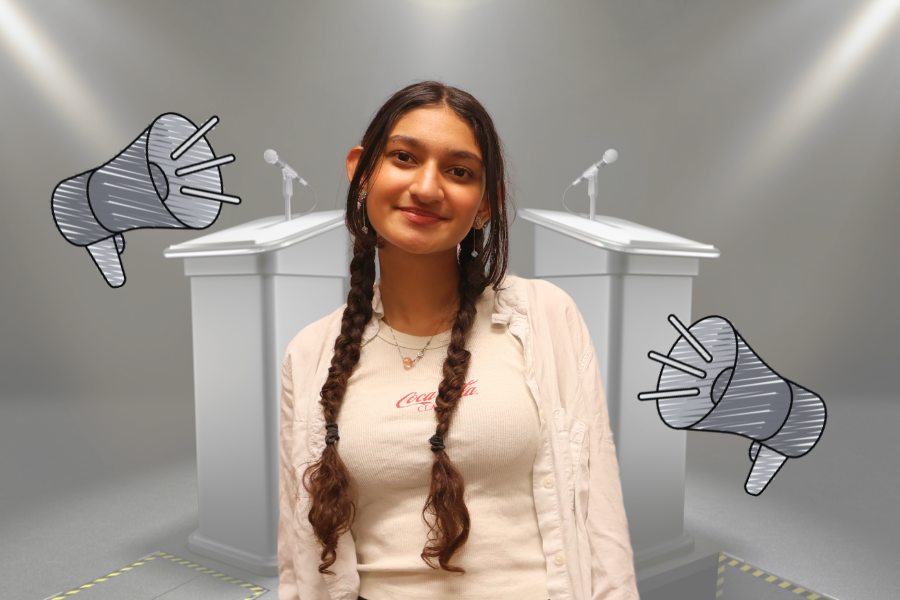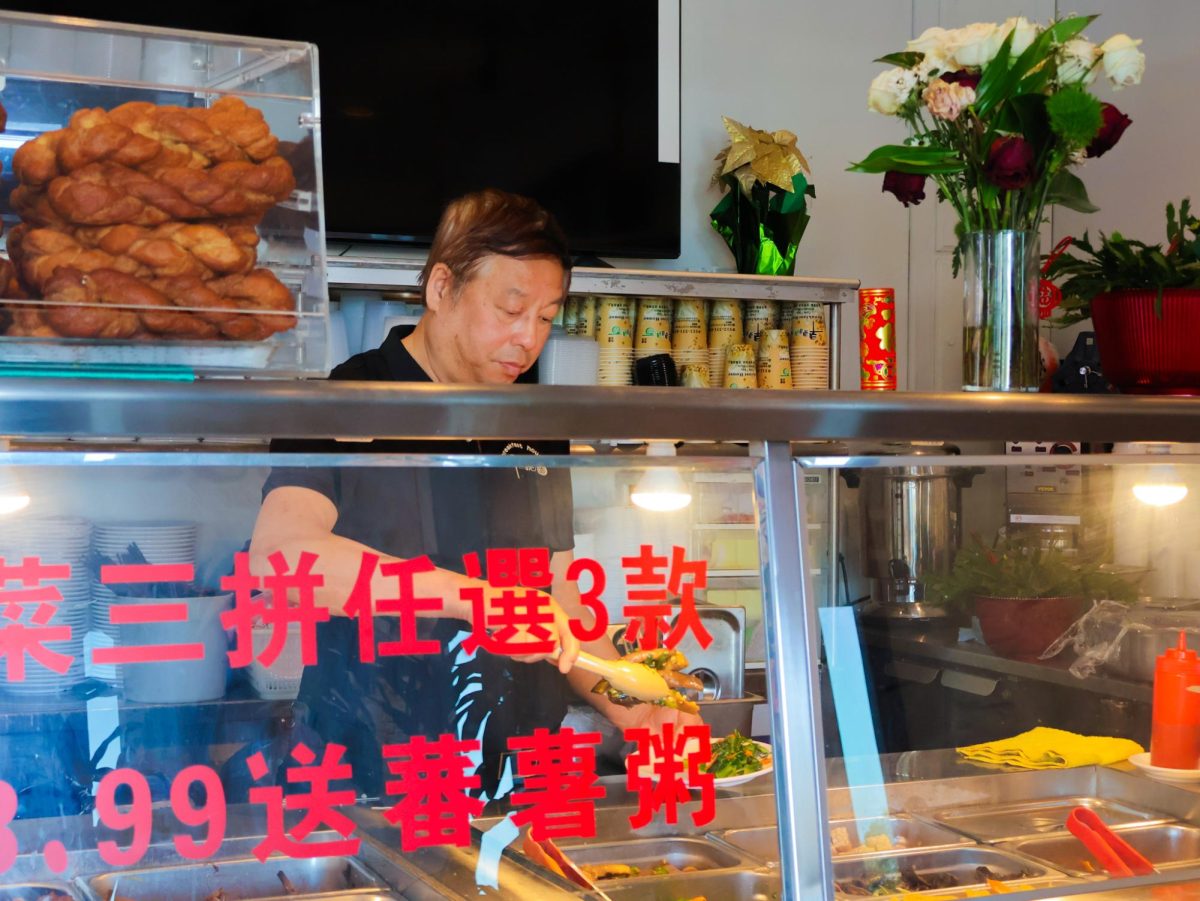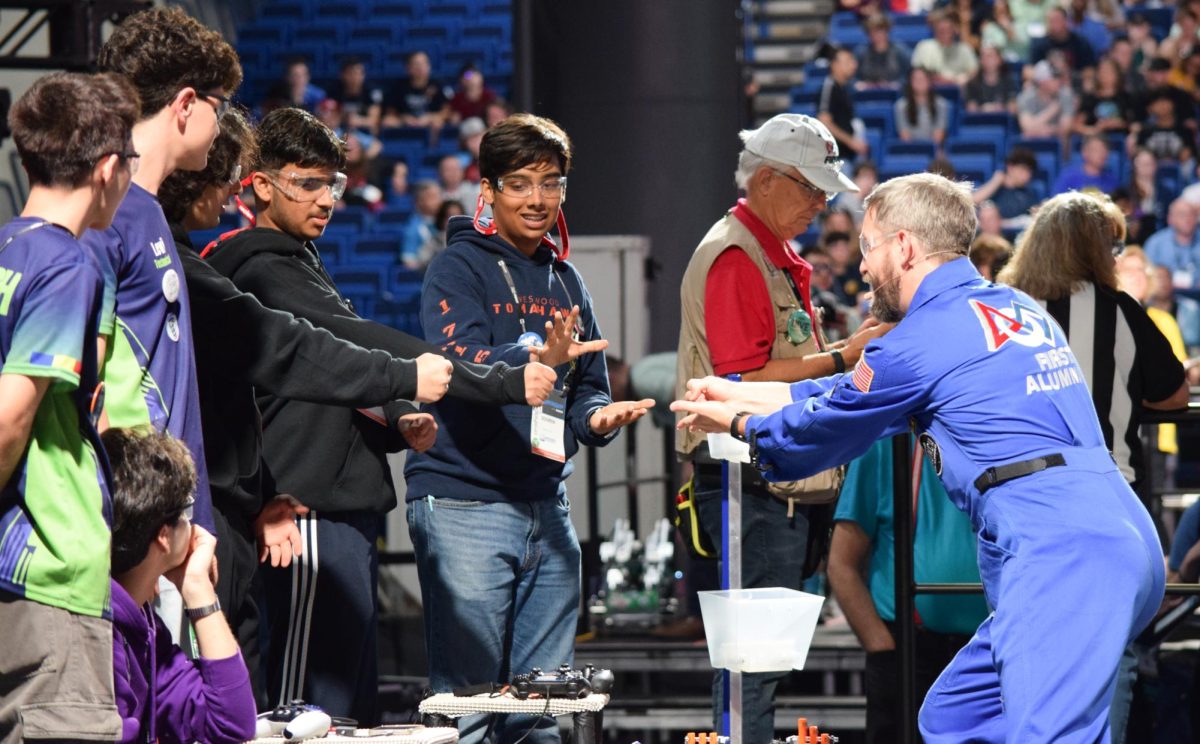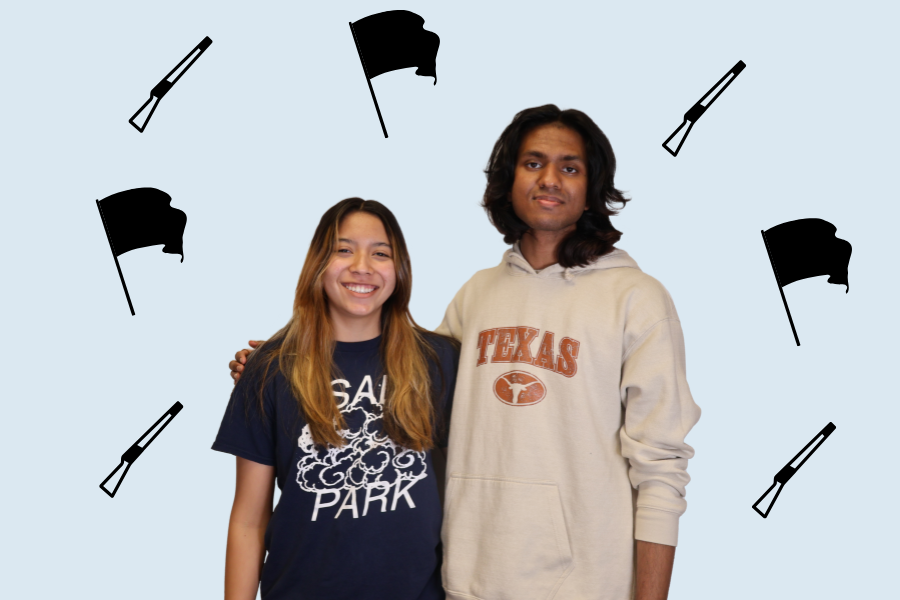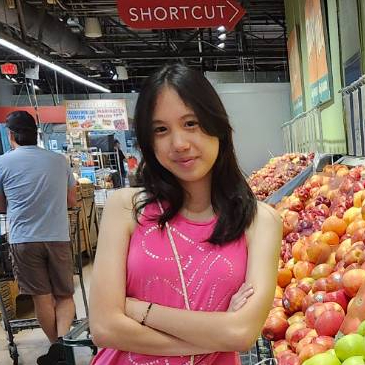After a year of questioning the nature of knowledge and delving into various global perspectives, seniors in the International Baccalaureate (IB) program have completed their Theory of Knowledge (TOK) course. The past year of TOK has welcomed numerous thought experiments and projects for students, and seniors officially bid their farewell to this course at the Gault Archaeological Site on Friday, Dec. 13.
TOK, a standout class in the IB program, is broken down into two semesters — with it beginning in the second semester of students’ junior year and concluding at the end of their first semester in senior year. The discussion-based course is centered around philosophy and the nature of knowledge. For students, this field trip invited reflection about their learnings over the past year concerning humanity’s origins and development.
“You’re standing up [at the Gault Site], looking at this ranch and creek and rocks, and you’re just like, ‘How could this have been the home of one of the most profound and most groundbreaking discoveries in all of archeology?’,” Chase Klipec ’25 said. “And, it’s just 30 miles from Westwood.”
This semester, the overarching theme of TOK has been origin. Seniors completed Oikos projects (“Oikos” is Greek for home) in mid-October, where they uncovered the culture and history of Austin through video series and murals. The field trip to the Gault Site served as an extension of their findings.
“With the Oikos project this year, we explored our community [and] local environment that we live in,” Mishree Narasaiah ’25 said. “So going to the archeological site really helped us kind of see a manifestation of how that could be important in the real world.”
Due to district-wide budget cuts, TOK classes look different than they have traditionally. While past class sizes have ranged from around 15 to 25 students, current blocks accommodate almost 40 people — creating a sense of disconnect among IB students. However, students note that the trip to the Gault Site has helped bridge that gap.
“It’s been harder to have discussions with the whole class, and it’s not as tight-knit as last semester,” Sanjana Alluri ’25 said. “But going on this trip together has connected all of us, and it reminded me that we are all going our separate ways in a few months.”
On the field trip, seniors were split off into groups and went on a tour of the entire site, learning about various tools and methodologies to uncover Clovis culture, an archaeological culture from the Paleoindian period of North America. But on the trip, students were accompanied by chilly and rainy weather.
“I think that the weather made the entire experience sort of meditative,” Klipec said. “Under this completely cloudy sky, it’s drizzling, and all that we’re doing is standing there silently, listening to tour guides talk about the past. It had the effect of putting me in the moment. I was listening and taking it all in.”
Teachers across the IB program were invited to supervise and chaperone the field trip, which prompted introspection about the connections between archaeology and varying academic principles. For IB Chemistry Teacher Mr. Joseph Griesel, exploring the Gault Site reinforced his passion for the hands-on learning that IB offers, and even gave him insight into his teaching style.
“Our tour guide discussed the contingent aspects of archaeology, about how people poke holes in the work they were doing [at the site],” Mr. Griesel said. “This was interesting because it showed me how I can apply TOK concepts to my Chemistry classes, [for example] getting students to constantly question concepts in Chemistry [Extended Essays].”
Although the trip was primarily meant to reinforce IB ideals and conclude the seniors’ year of TOK, visiting the Gault Site served as a reminder for students to seek balance and appreciate nature.
“[Being outside] is good for your health [and] good for your mind, just being able to sort of invent how you live your life and invent something with the materials and sticks,” Klipec said. “There’s a freedom to being outside.”

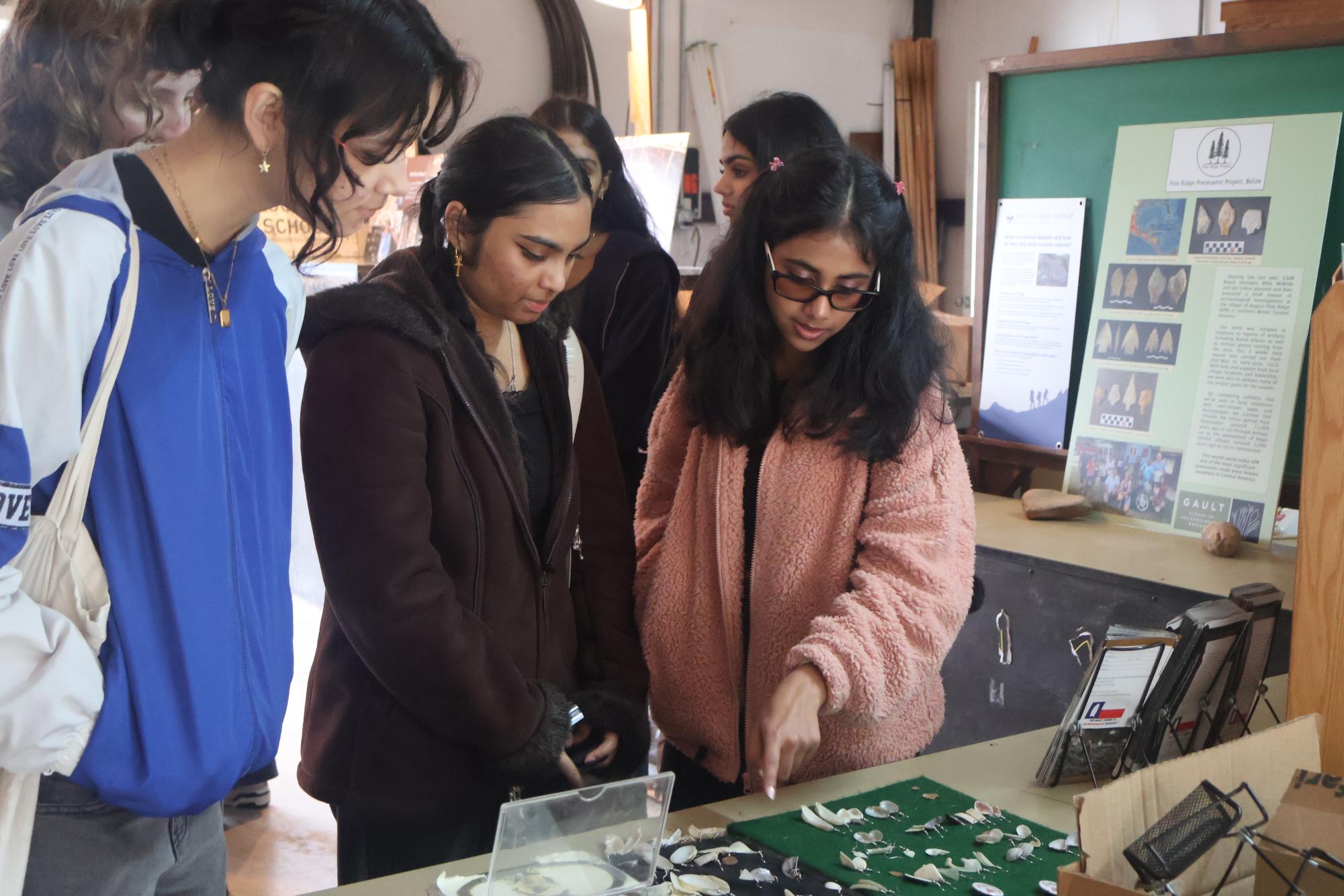
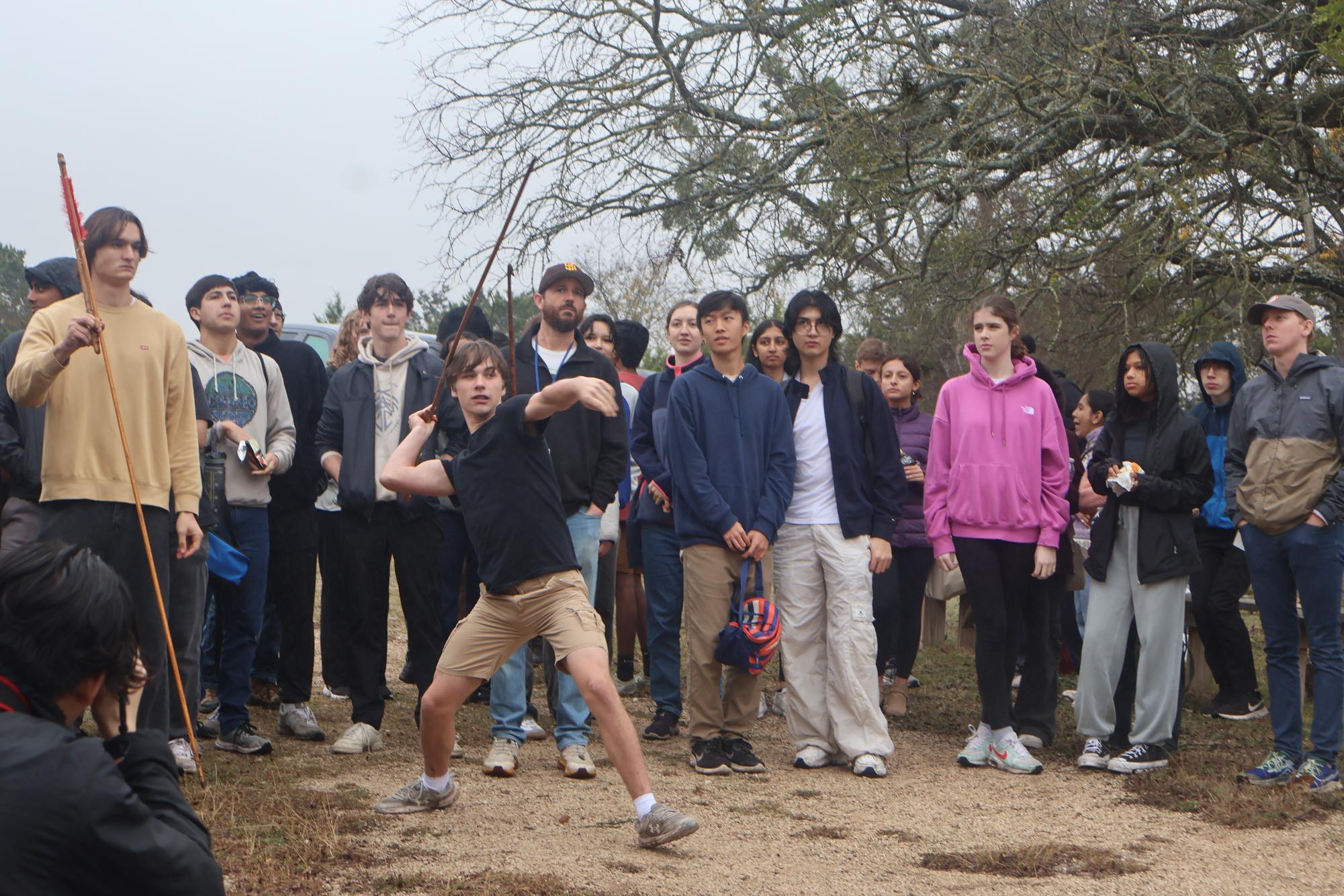
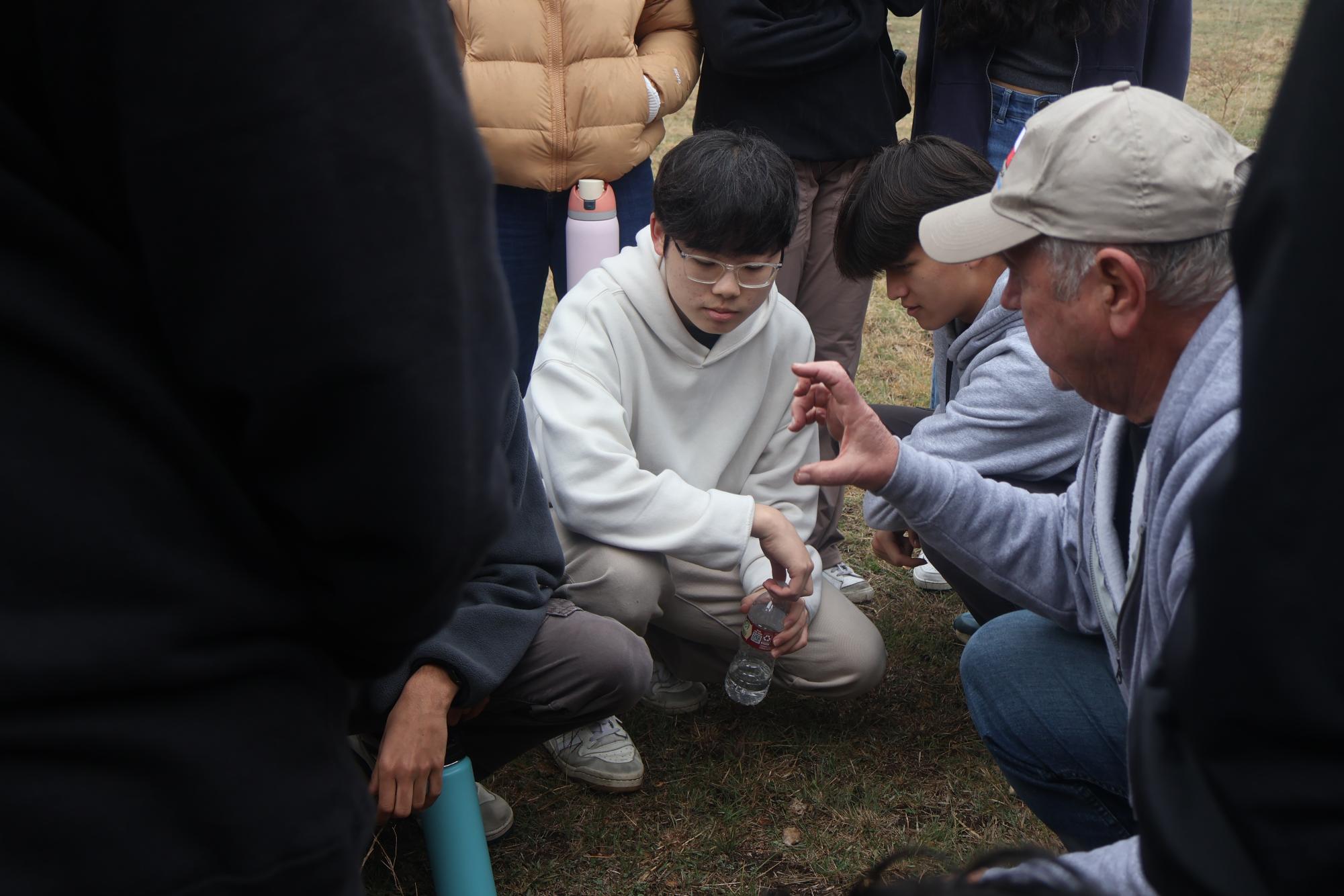
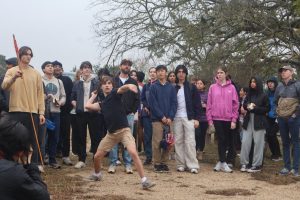
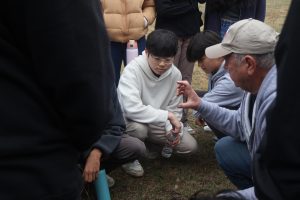
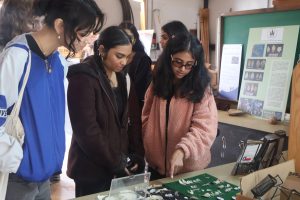
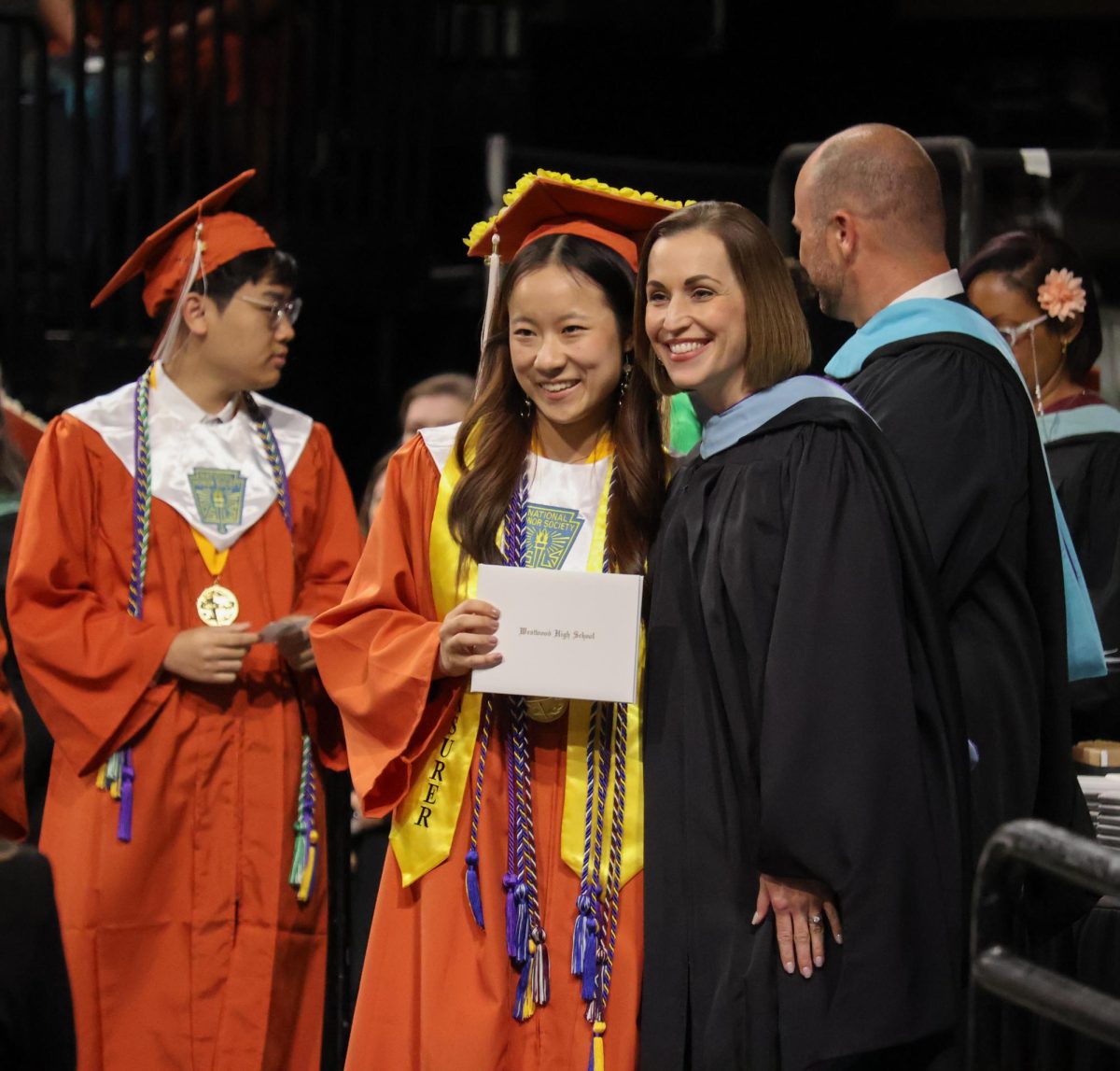


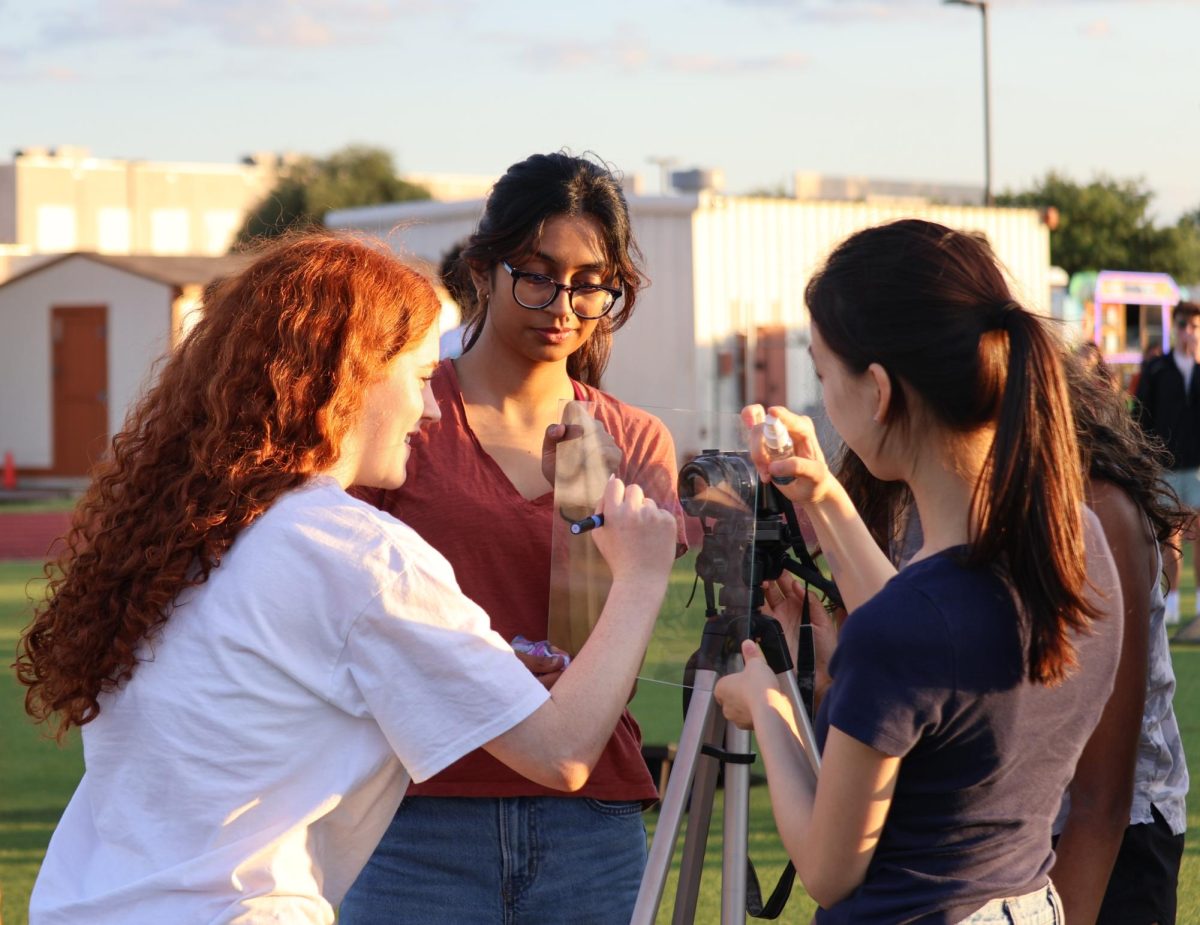
![Holding her plate, Luciana Lleverino '26 steadies her food as Sahana Sakthivelmoorthy '26 helps pour cheetos into Lleverino's plate. Lleverino was elected incoming Webmaster and Sakthivelmoorthy rose to the President position. "[Bailey and Sahiti] do so much work that we don’t even know behind the scenes," Sakthivelmoorthy said. "There’s just so much work that goes into being president that I didn’t know about, so I got to learn those hacks and tricks."](https://westwoodhorizon.com/wp-content/uploads/2025/05/IMG_0063-1200x1049.jpg)

